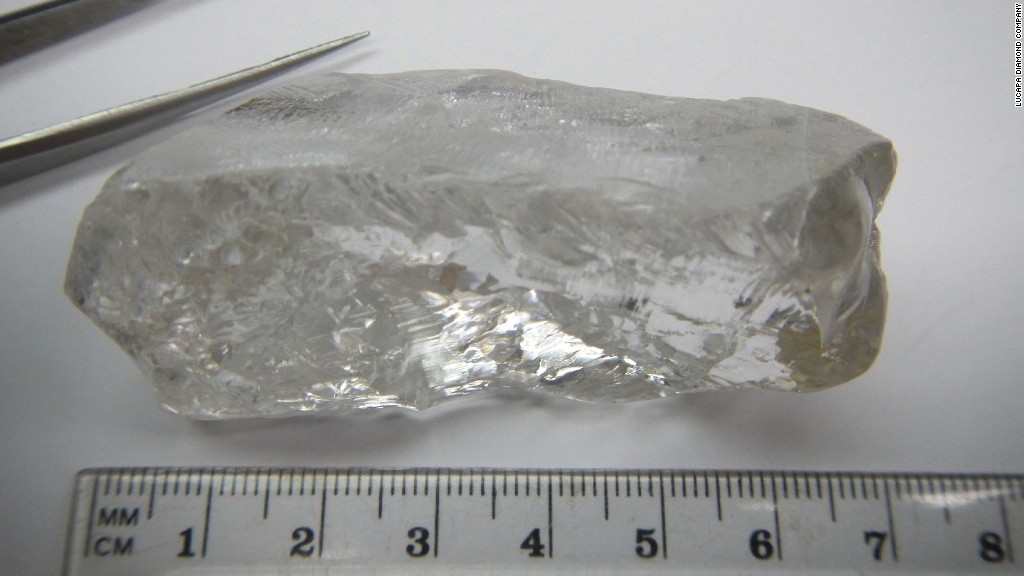
In Afghanistan, where decades of warfare have ravaged the country, there's a beautiful green oasis tucked between the mountains that's home to something rare and precious.
The Panjshir Valley, located north of Afghanistan's capital Kabul, is an area rich with more than 172 emerald mines.
Known as Panjshir emeralds, the gems boast a unique bluish-green color that make them among the country's most-iconic treasures.
Entrepreneur Habib Mohebi grew up in Kabul hearing about the emerald mines from friends local to that area. Years later, that knowledge would reconnect him to his homeland in a distinctive way.
Related: Hillary Clinton's new plan to help small business owners
Mohebi is the co-founder of Aria Gems, a company that mines and exports Panjshir emeralds. While its mining operations are in Afghanistan, the business is headquartered in New York, and its gem processing and cutting center in Fargo, N.D. There, the rough emeralds are turned into polished stones.
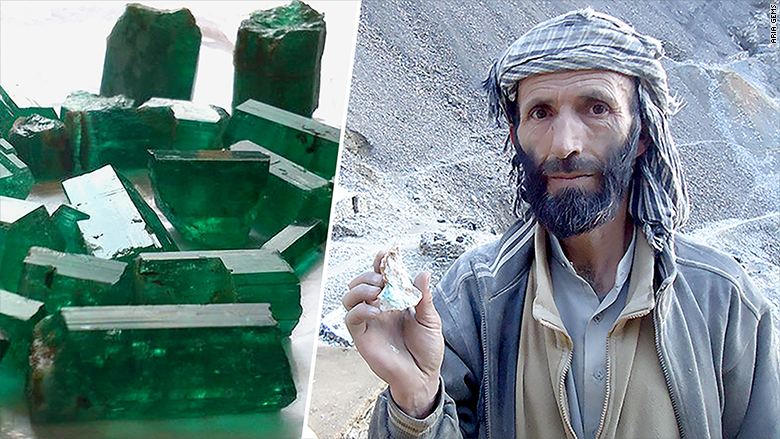
Since it launched in 2013, Aria Gems has become one of the largest suppliers of legally-mined Panjshir emeralds, having shipped more than 30,000 Carats of the stone.
It also owns three underground mines and four acres of surface area emerald deposits in Panjshir Valley.
Related: How a free Super Bowl ad turned Death Wish Coffee into a household name
Mohebi's entrepreneurial journey, however, didn't start with gems. He left Afghanistan for the U.S. in the 1980s, shortly after Russia invaded the country. He settled in Atlanta and opened a tailoring business.
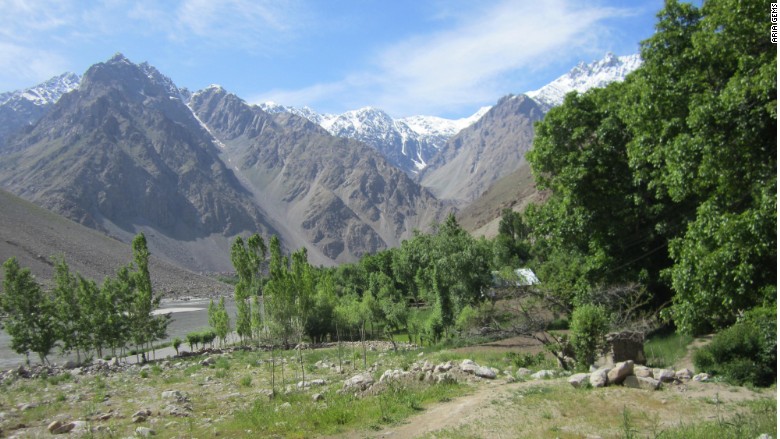
That's where he met co-founder Forrest Snowden, a technologist working with IBM at the time, who frequented the shop. The two became friends.
"I knew nothing about Afghanistan, but I lived in the middle of an Afghan-American community in Atlanta at the time," Snowden said. "Every Friday, I'd sit with him at his shop and talk about his culture over a cup of tea."
In return, Mohebi persistently asked Snowden to start a company together that could help rebuild Afghanistan.
After Snowden left his job, he took up Mohebi's challenge. Along with Mohebi's brother Jamil, the trio first launched Aria Global Logistics in 2009.
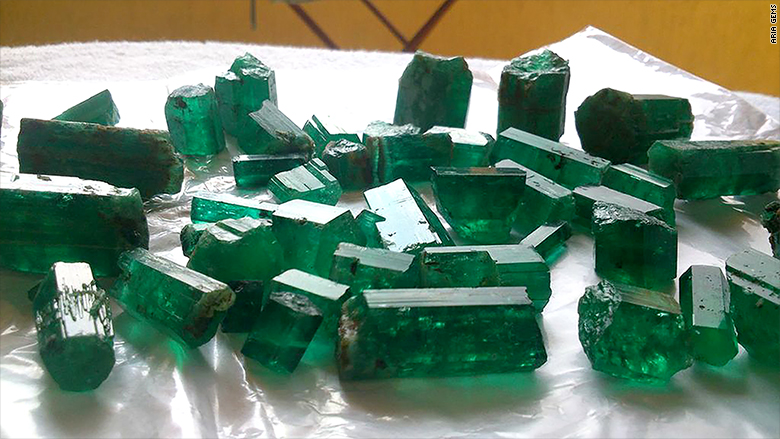
The startup helped facilitate U.S. federal contracts for construction, transportation and logistic development in Afghanistan. It later entered into joint ventures with local Afghan construction companies.
"Our business was doing well," Snowden said. "Habib later told me about the emerald mines in Panjshir Valley. In 10 years of knowing him, he never [mentioned them before]."
"I immediately made a business case for the global trade of emeralds and other gemstones in Afghanistan," he said.
Related: This startup wants to prevent another Flint water crisis
Currently, the world's top emerald mining countries of Brazil, Zambia, Zimbabwe and Colombia -- which occupies the biggest piece of the mining pie -- produce a bulk of the global supply. Together, the countries bring in about $1.4 billion worth of gems annually.
By contrast, Afghanistan sells about $50 million worth of Panjshir emeralds annually.
"Most of it is in illegal trade," said Snowden, adding that both sellers and miners are usually underpaid for the value of the gems.
Said Mubin Shah, commercial attache with the Afghan Embassy on Washington, D.C. said the country's gems industry also lacks regulation and safety protocols.
"In Afghanistan, there is a grave issue of lack of education," said Shah. "There are many people in the gems industry who are unlicensed, unprofessional and extracting gems illegally."
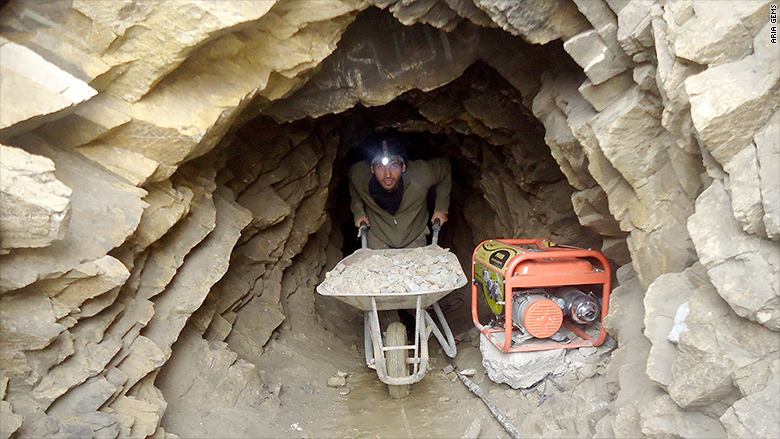
In the Pajshir Valley, the emerald mines are owned and operated by community elders. "It's been that way for generations," said Snowden.
But mining often involves explosives: "[It's] not only dangerous, the process also fractures the stone," he added.
In 2013, Snowden and Mohebi launched their second business, Aria Gems, as a part of an effort to legally trade Panjshir emeralds in global markets.
The team only mines in areas free from conflict.
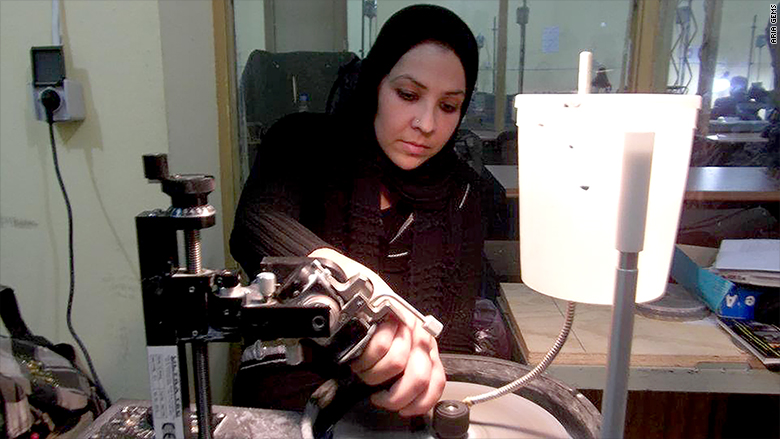
"We wanted to help the miners learn safer modern techniques that wouldn't damage the stone," said Mohebi. "[And] we're training men and women how to cut and polish the stone, too."
The company continues to have ambitious plans for its gems business.
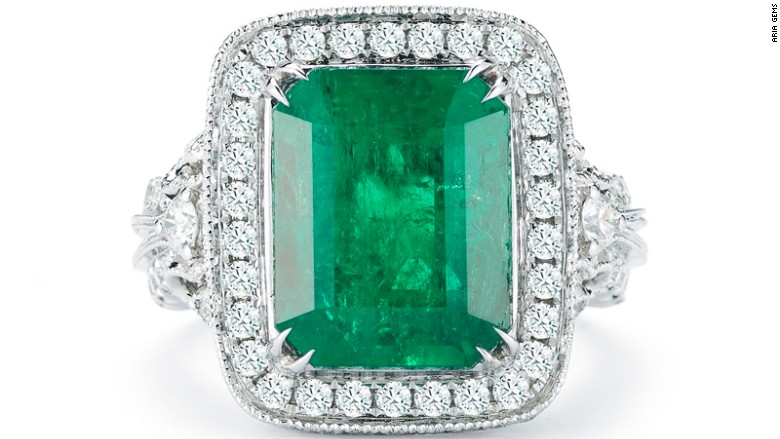
By making the illegal gems trade in Afghanistan legal, Aria Gems wants to create more jobs in the country and generate more income.
"We want to put Panjshir emeralds on the map," said Snowden. "There's no reason why Afghanistan can't one day be second to Colombia in emerald mining."



